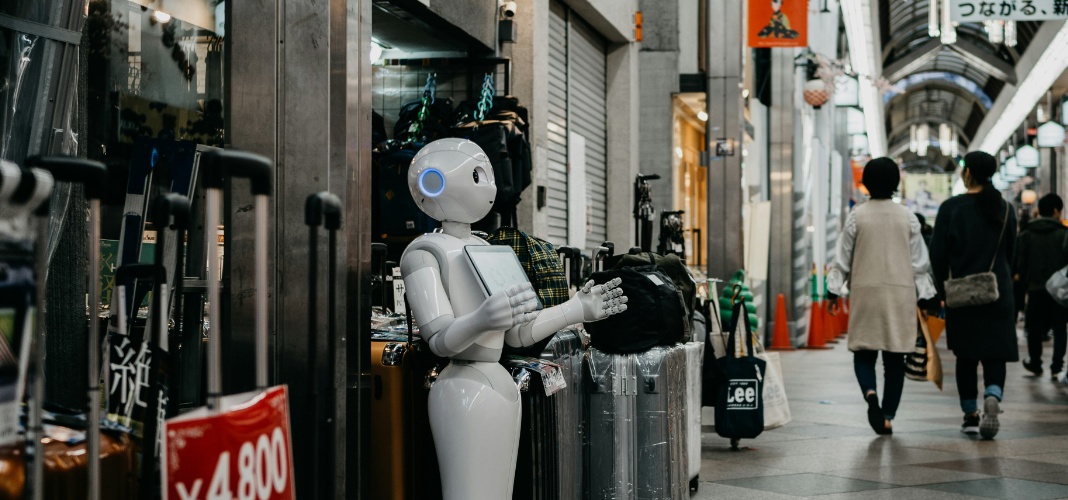AI, a science fiction? Not anymore. It has moved from mere science fiction to reality and has become a tangible part of everyone’s lives. From answering questions to algorithms that create our social feeds, AI is transforming the world and the way we interact with each other.
But is it all “promises” without even a hint of peril? How far are we from a future that needs no human oversight when it comes to AI? This question is not just about AI’s capabilities as a tech development; it is also about trust, ethics, and the fact of future progress.
AI’s Ubiquitous Presence
Before we dig into “Human-Oversight-Not-Required”, let us spend some time appreciating its growth:
- Personalized Recommendations: Personalized experiences are available even on streaming services, e-commerce platforms, and social media, recommending more content and products that we might enjoy using.
- Voice Assistants: Siri, Alexa, and Google Assistant are powered by AI, allowing us to control devices, set reminders, and access information with voice commands.
- Navigation and Transportation: GPS navigation, ride-sharing apps, and even some aspects of modern vehicle safety systems utilize AI to optimize routes and enhance safety.
- Customer Service: Chatbots and virtual assistants are increasingly handling routine customer inquiries, freeing up human agents for more complex issues.
- Financial Transactions: Fraud detection algorithms, automated trading, and personalized financial advice are all powered by AI.
AI has really played out to be an all-rounder and these examples are testaments to its many possibilities.
The Quest for Autonomous AI
Should AI achieve complete autonomy?
That thought itself might scare some of us. AI, with all its powers not being monitored by humans can present many challenges:
- Reliability and Robustness: ML is complex and AI systems can be more susceptible to errors and biases, especially with ML. AI can struggle with uncertain situations or data that it is not trained on.
- Explainability and Transparency: Results and decisions are crucial. And for AI to achieve results and derive certain decisions needs understanding and trust. “Black box” algorithms, where the decision-making process is opaque, raise concerns about accountability and fairness.
- Ethical Considerations: AI systems must be designed and deployed in a way that aligns with human values and ethical principles. Issues such as privacy, bias, and the potential for misuse must be carefully addressed.
- Contextual Understanding and Common Sense: We humans have a plethora of background knowledge and common sense that helps us wade through complex issues. The adaptability that we have is far more than the level of contextual understanding in AI systems. The question is whether they can replicate humans’ understanding and the way the human brain works.
- Legal and Regulatory Frameworks: The litigacy and the regulatory frameworks for AI to run completely without human surveillance are inevitable. This addresses a lot of liability and accountability.
The “Human-Oversight-Not-Required” Horizon
Now that we have discussed AI’s significance and challenges, let’s also dive into the focal point of this blog.
It looks like we might never reach a point where all AI systems function without any form of human oversight. We might likely reduce human oversight, but removing it completely is out of the question. Obviously due to their challenges. But for tasks with minimal consequences such as personalized recommendations or daily customer service requests and inquiries, AI may enjoy a high level of autonomy in the near future.
However, in areas such as autonomous vehicles, healthcare, and financial decision-making, human oversight is highly essential and these are areas where AI systems will be monitored.
Constant control is not required and nobody wants to do that either. Instead, humans will likely shift to more of a monitoring and exception-handling role. AI’s capabilities can be essentially used to flag anomalies, and humans will step in only when needed.
A Collaborative Future
Are we still in that space where we see humans being replaced by AI? We hope not. Rather than picturing AI as an evil unknown futuristic machine, we should collaborate with its powers and delegate tasks that require minimal monitoring, so that we can focus more on critical tasks and decision-making.
Also read: AI Cyberthreats vs. AI Cybersecurity: Modern Solutions to Modern Threats


